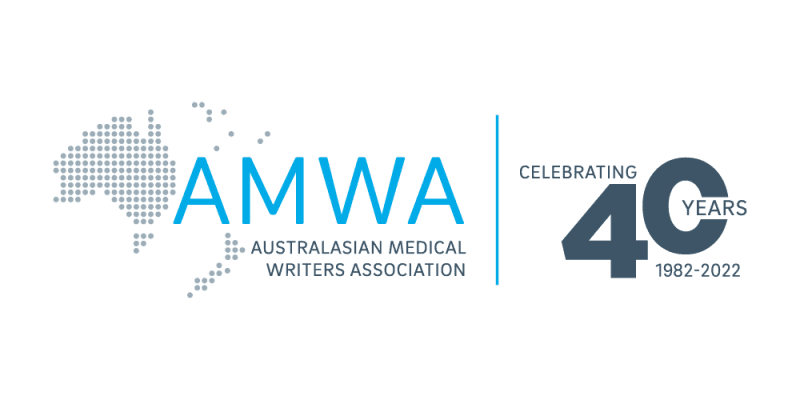Integrity in a post-truth world: lessons from AMWA 2018
At AMWA 2018, a hundred or so health and medical communicators gathered in Melbourne for two days to explore the theory behind the concept of integrity in medical communication.
Delegates from Australia and New Zealand heard from science communicators, journal editors, news reporters, content marketers and business owners about how to maintain integrity in challenging fields – from commercial organisations to highly-regulated environments.
Here are some of the key take-homes from AMWA 2018: integrity in a post-truth world.
Be authentic
Keynote Dr Andrew Stapleton, science communicator and founder of verbalize.science, gave a blatantly honest account of his career and how he found his authentic voice by disrupting traditional science communication.
Andrew said that the way to maintain integrity in a post-truth world is to be authentic, share the science story, celebrate the people behind the science, be consistent with content, be brave and take risks.

Involve consumers early on
Speaking on behalf of the Centre for Culture, Ethnicity & Health, Jolyon Burford discussed the importance of involving consumers in the process of preparing information.
Health literacy is both environmental and individual, Jolyon argued, and dropping jargon is critical to improving health literacy in vulnerable groups.
Go deeper into research
Professor David Bishop, an applied sport scientist and research leader from the Institute of Sport, Exercise and Active Living at Victoria University, presented arguably the most powerful and emotional presentation of the meeting.
David created an emotional storyboard based on a children’s book to showcase various ethical issues in conducting and interpreting research.
David advised looking at study methods to verify the believability of a trial and checking the preregistration of clinical trials as a way of spotting any potential ethical issues.
Base messages on audience needs, not your wants
Too often we write documents for ourselves, not our ideal readers. Tamika Heiden from Knowledge Translation Australia spoke about why understanding your audience is vital for meeting audience needs.
Repeating someone’s words in their language shows you understand, Tamika said.
Ethics in medical writing
A panel discussion on ethical medical writing covered issues about accessing journal papers, GP education via industry and pharmaceutical companies and how to refuse work that raises ethical dilemmas.
Medical writers have a lot of power, the panel agreed, and it’s our obligation to speak up if we notice anything unethical.
Also, the point was made: just because a practice is legal does not mean it is ethical.
Dedicate time to fact-checking, and own your mistakes
We all make mistakes – and, even large publishers with rigid fact-checking processes will mess up from time to time.
Signe Dean, the Editor of the hugely popular ScienceAlert website, shared an insight into ScienceAlert’s specialty fact-checking process and discussed how to check facts as a separate piece of work to the writing process.
In showcasing some of ScienceAlert’s past factual errors and typos, Signe’s message was clear: accept your errors, correct them, apologise and move on.
Navigate content marketing with an integrity filter
Dr Leanne Downing from Affect Media Public Relations and a lecturer at the School of Psychology and Public Health, La Trobe University, explored content marketing and integrity with a heavy focus on healthcare professional marketing guidelines.
Leanne highlighted what can go wrong if writers don’t help their clients adhere to these guidelines.
Leanne also gave us tips to maintain integrity, including clarifying our go/no-go process on projects, identifying client intent and expectations upfront and explaining the legislative environment to new clients.
The patient voice belongs in publications
Dr Tania Dickson from the Envision Pharma Group spoke about ethical publications.
Tania said that patients are becoming savvier and taking the time to read publications to make shared decisions with their clinician.
Tania also argued that plain language summaries are becoming more popular, as they help patients understand clinical trials and research. As a result, industries are involving patients in the development of clinical study protocols.
In closing her session, Tanya had an inspirational message to share: medical writers are not just scribes. We’re a valued partner in the publication process and a font of knowledge for ethical publishing.
We are the gatekeepers of ethical publication practices (and ethical medical writing in general) and we need to step up and own our roles.
Other key take-homes
Some of the common themes to emerge from the other sessions and workshops of the meeting include:
- “Nothing about us without us”: let people tell their own stories – a vital message from disability activist Carly Findlay
- There is no straight line to success – reassess your expectations, adopt a long-term focus and persevere when times are tough; know that things will get easier and hard work does pay off
- Stay honest and true to yourself – don’t be afraid of sharing your ups and downs with your peers and colleagues, and paint a realistic picture of what being in business means
- It’s your right to speak up – if a job or style of conduct doesn’t feel right, discuss the reasons why with your client or employer and be brave enough to raise any issues
- Refer to guidelines and industry resources for best practices – and you can use these guidelines if you are planning to say no to a job
- Maintain authenticity – aim to be an authentic voice in your industry, and remain true to your beliefs
Member Spotlight - Neena Bhandari
Neena is a Sydney-based freelance foreign correspondent with a focus on health and disability issues. Read about how her own lived experience has driven and shaped her career, and how a unique piece of writing helped facilitate policy change.
Read more
Read more

